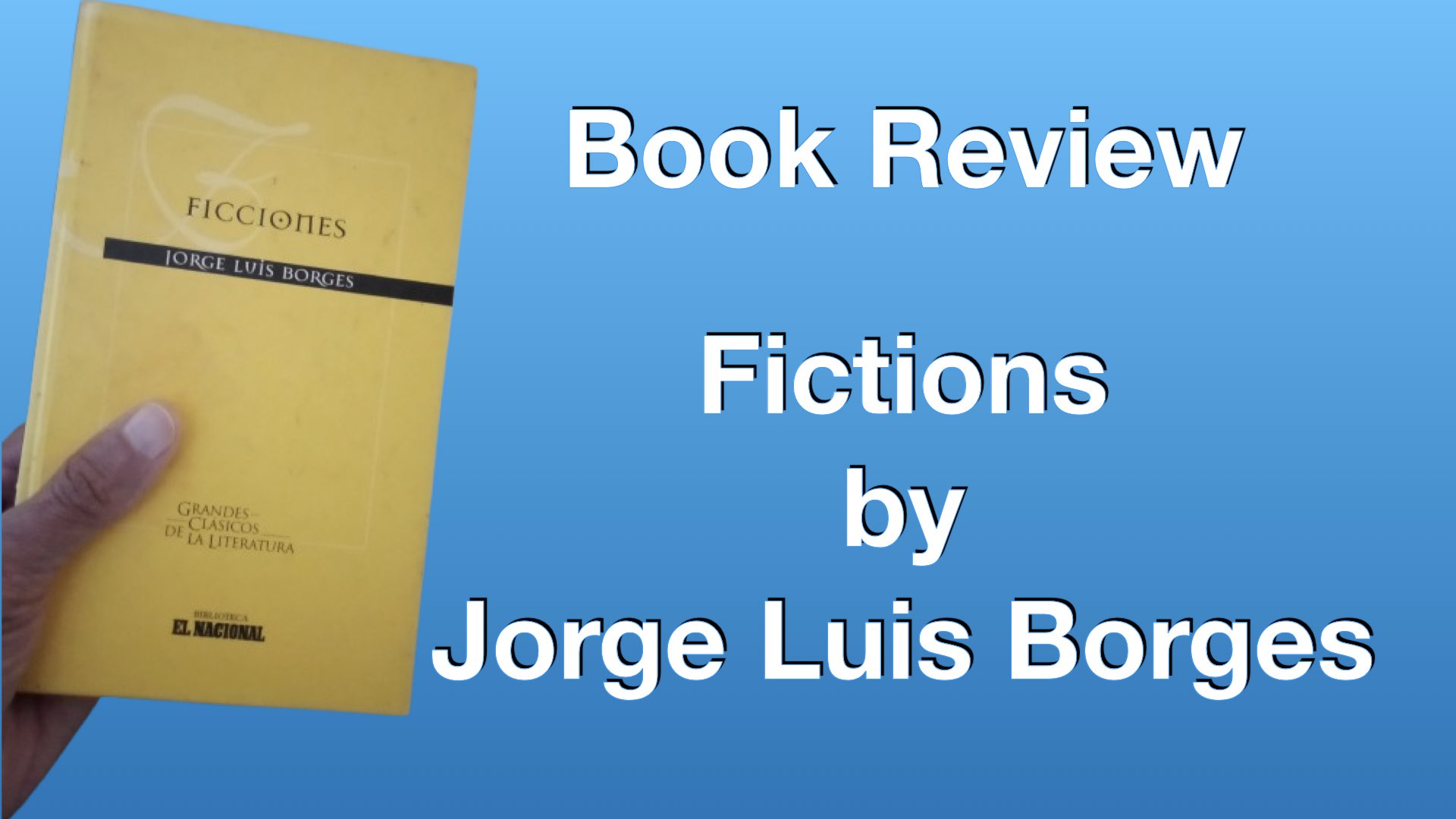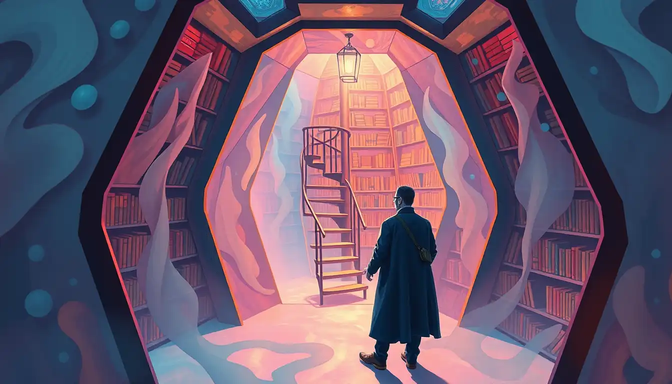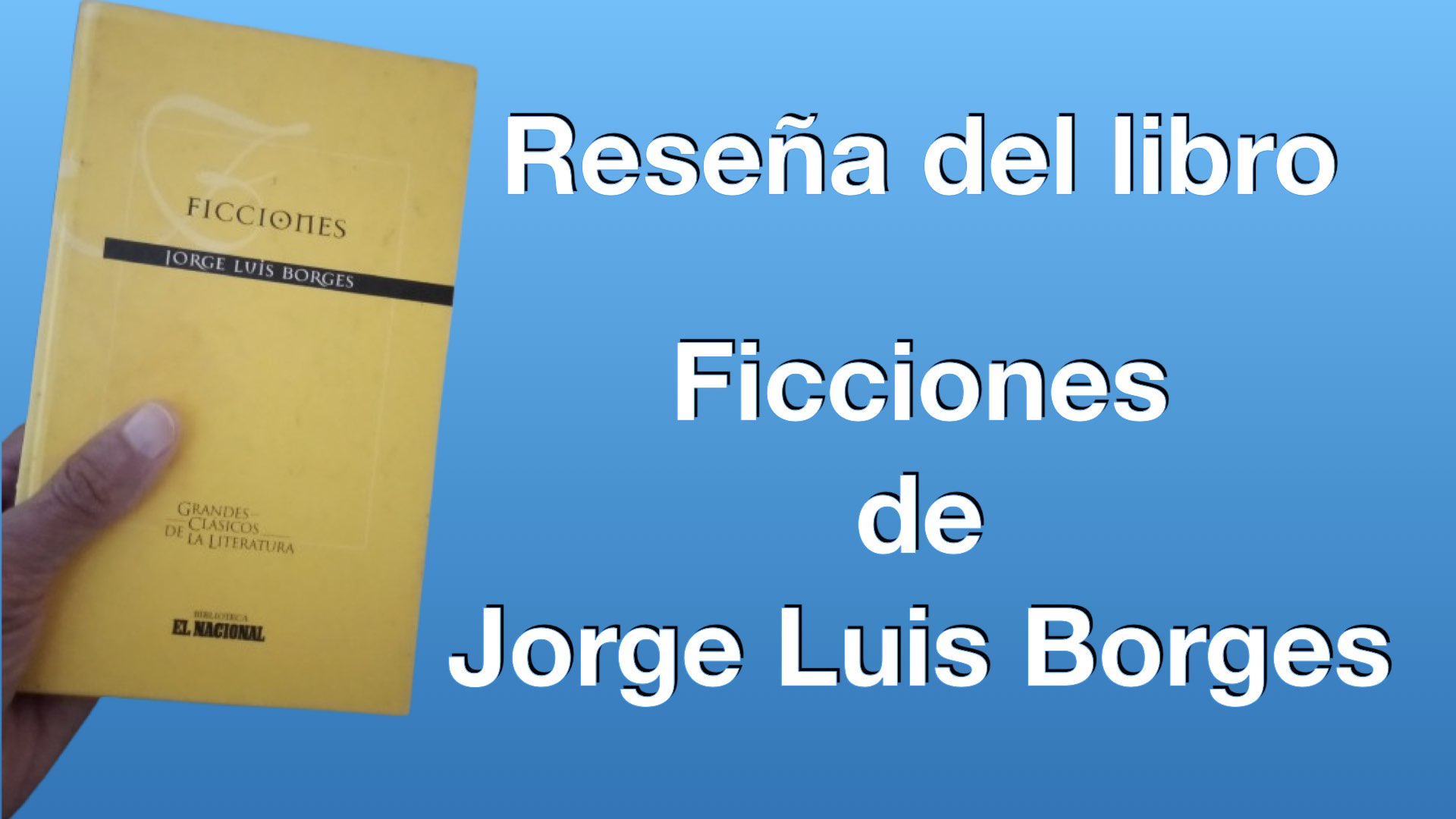

One of the most celebrated and influential Latin American writers of the twentieth century was undoubtedly the Argentine Jorge Luis Borges. And yet, despite being nominated on more than one occasion, he never received a well-deserved Nobel Prize in Literature. Paradoxically, this pettiness only served to increase his fame.
This month, I decided to read the work—which had been sitting on my bookshelf for years—that launched him onto the literary radar: Fictions.
Borges worked as a librarian. He lived among books, and in books he found a place among giants such as Cervantes without being a born novelist. In fact, he preferred the short story genre, under the praxis of economy of language: he expressed profound ideas with neatness and beauty, with few words, without being laconic.
You know? I don't know if I'm making a mistake, and if the great storyteller would approve (I suspect not). But... little by little, I am transforming my library into a minimalist one. Yes, I have been giving away books that I acquired over decades. Not because I don't value them! Simply because they have already served their purpose in my life. Most are technical-professional, and a few are self-help books.
Of course, I still keep the philosophy books in reserve, and especially some fiction. Some of these remain because I have yet to read them, and others because they are gems that should not be missing from the library, such as Don Quixote de la Mancha.
I confess that I found J.L. Borges's “Fictions” difficult at first. This is especially true when one is accustomed to linear narratives and superficiality. Therefore, if you dare to sample this work, I recommend reading it slowly and carefully so that you can appreciate prose that exudes erudition and a sublime command of language from the perspective of the first-person narrator, as a partial witness. Each story surprises, both in style and depth. Perhaps for this reason, the distinguished librarian was attacked as elitist and academic, but in truth, he is very accessible to those who take the time to read him; hence his greatness and ability to surprise the competent reader.

Image AI-generated from https://www.gentube.app with my username jnavedan
In this sense, it is not a book to be devoured in one sitting. “Fictions” consists of two parts. The first, “The Garden of Forking Paths,” brings together eight stories that touch on the fantastic, the mystical, and the philosophical, even in a crime chronicle; all have magnificent hooks, although the most referenced is “The Library of Babylon.” I assure you that the rest will not disappoint. The second part, “Artifices,” brings together nine stories that touch on a wide range of themes, such as the limits of memory, honor, betrayal, history, destiny, justice, heresy, sacrifice, duality, and death, to name just a few that intersect.
An interesting fact for those who also enjoy the seventh art: renowned filmmakers such as Chris Nolan drew on Borges' ideas—written in 1944—to develop their award-winning films, which today are mind-boggling in their visual aesthetics.
Without giving too much away, when I visited the library, I was struck by surrealism as I tried to visualize the descriptions of such a wonderful place that symbolizes the universe itself. I wanted the AI to recreate the space through a prompt, but I was not satisfied. The image created in my mind by Borges' prose was more powerful. Perhaps it is my inability to create the precise instructions to generate the hexahedral rooms with shelves full of books containing almost infinite stories made possible by 22 orthographic signs, not counting punctuation marks.
In conclusion, “Fictions” will remain in my library, and as you can guess, I recommend that you read it if you haven't already. Take your time, learn, and explore the genius of this storyteller, who, with careful use of words, built extraordinary worlds in the brevity of his fictions that bring the classic to the present.

The book's review by @janaveda in Spanish and translated to English with www.deepl.com (free version)
Thumbnail created by me with Keynote.
##### Thanks for reading to me. I hope this review is to your liking. I would greatly appreciate reading your comments on this matter to benefit from your perspective and criticism.
Tired...! Are you no longer satisfied with traditional social networks?
Then I invite you to get to know Hive by clicking here.
Join our global community, where uncensored freedom is our north.



Uno de los escritores latinoamericanos más celebrados e influyentes del siglo veinte, sin duda, fue el argentino Jorge Luis Borges. Y, sin embargo, aunque fue nominado en más de una ocasión, no recibió un merecido premio Nobel de Literatura. Paradójicamente, esta mezquindad acrecentó su fama.
Este mes decidí leer la obra ―añeja en mi estantería― que lo lanzó al radar literario: «Ficciones».
Borges ejerció como bibliotecario. Vivió entre libros, y en los libros encontró un lugar entre gigantes como Cervantes sin ser un novelista nato. De hecho, él prefirió el género del cuento, bajo la praxis de la economía del lenguaje: expresó con pulcritud y belleza ideas profundas, con pocas palabras, sin ser lacónico.
¿Saben? No sé si incurro en un desatino, y si el gran cuentista me daría su beneplácito (sospechó que no). Pero… poco a poco, transformo mi biblioteca al minimalista. Sí, llevo tiempo regalando libros que adquirí durante décadas. ¡No porque los desestimes! Simplemente, ya, cumplieron el propósito en mi vida. La mayoría son técnicos-profesionales, y otros, muy pocos, de autoayuda.
Claro, todavía mantengo en reserva los de filosofía, y en especial, algunos de ficción. De los cuales estas permanecen, unos, por estar pendientes en su lectura, y otros, por ser joyas que no deben faltar en la biblioteca; tales como, por ejemplo: «Don Quijote de la Mancha».
De «Ficciones» de J.L. Borges, confieso, al principio me fue difícil. Más cuando uno está acostumbrado a una narrativa lineal y de supuesta superficialidad. Por lo tanto, si te atreves a degustar esta obra, recomiendo una lectura pausada y atenta para que aprecies una prosa que destila erudición y un excelso dominio del idioma desde la perspectiva del narrador en primera persona, como un testigo parcial. Cada cuento sorprende, tanto por el estilo como por la profundidad. Quizás por ello, el insigne bibliotecario fue atacado de elitista y académico, pero en honor a la verdad, muy asequible a quien se esmera; de allí su grandeza y capacidad para sorprender al lector competente.

Imagen generada por IA desde https://www.gentube.app con mi usuario jnavedan
En tal sentido, no es una lectura para devorársela en una sentada. «Ficciones» consta de dos partes. En la primera, «El jardín de senderos que se bifurcan», se aglutinan ocho cuentos que tocan lo fantástico, místico y filosófico, incluso en una crónica criminal; todos tienen ganchos magníficos, aunque el más referido sea «La biblioteca de Babilonia», les aseguró que el resto no los defraudará. En la segunda parte, «Artificios», se reúnen nueve cuentos que tocan una amplitud de temas, tales como: límites de la memoria, honor, traición, historia, destino, justicia, herejía, sacrificio, dualidad, muerte; solo por nombrar algunos que se entrecruzan.
Un dato interesante para quienes también disfrutan del séptimo arte, cineastas del renombre de Chris Nolan, bebieron de las ideas de Borges ―ya escritas en 1944― para desarrollar sus laureadas películas y que hoy rompe la cabeza en la estética visual.
Sin darles muchos spoilers, cuando pasé por la biblioteca, caí en el surrealismo al intentar visualizar las descripciones de tan maravilloso lugar que simboliza al universo mismo. Quise, a través de un prompt, que la IA recreara el recinto, y no quedé satisfecho. La imagen causada en mi mente por la prosa de Borges era más poderosa. Tal vez, sea impericia de mi parte para crear las instrucciones precisas para generar las estancias hexaédricas con anaqueles llenos de libros con historias casi infinitas permitidas por 22 signos ortográficos, sin contar los de puntuación.
En conclusión, «Ficciones» permanecerá en mi biblioteca, y como deducirán, recomiendo que la lean, si aún no lo han hecho. Tómenselo con calma, aprendan y exploren la genialidad de este cuentista, quien con un cuidadoso uso de las palabras, construyó en la brevedad de sus ficciones, mundos extraordinarios que traen al presente lo ya clásico.

Reseña del libro por @janaveda
La miniatura creada por mi con Keynote.
##### Gracias por leerme. Espero que esta reseña sea de su agrado. Me gustaría mucho leer sus comentarios al respecto para enriquecerme con sus críticas.
¡Cansado! ¿Ya no te satisfacen las redes sociales tradicionales?
Entonces, te invito a conocer Hive presionando aquí.
Únete a nuestra comunidad global, en donde la libertad sin censura en nuestro norte.
